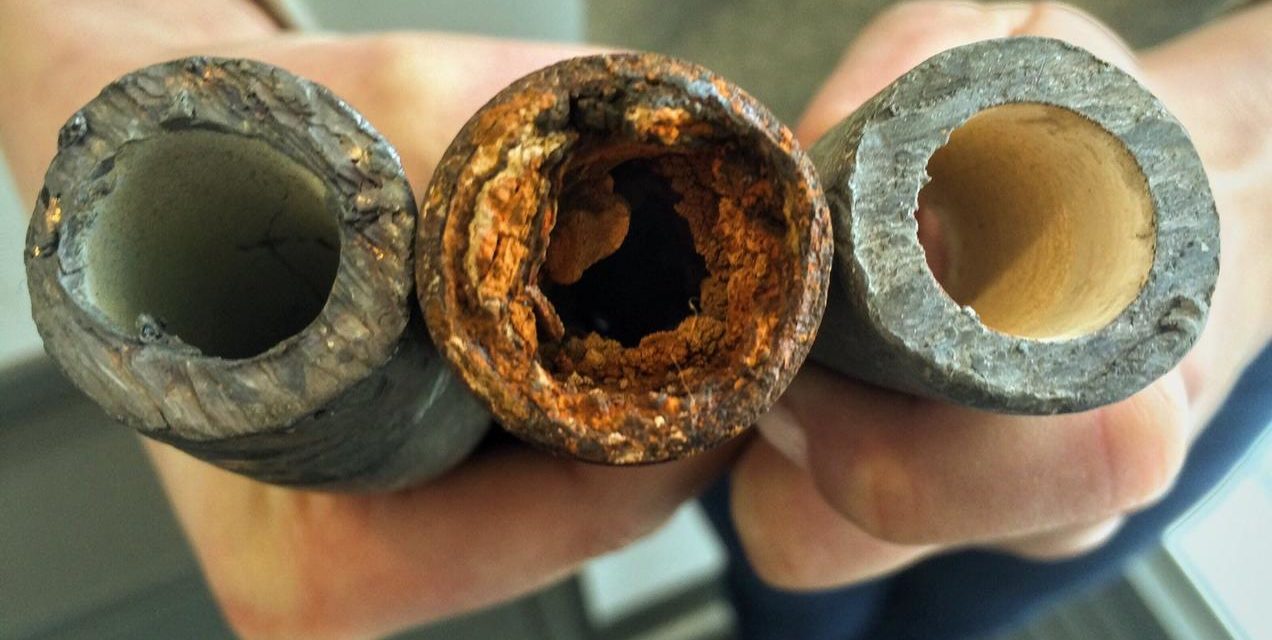Michigan is receiving applause today from environmental groups across the country for adopting the nation’s most stringent rules on preventing lead-contaminated drinking water.
More than four years after the beginning of the Flint water crisis, which gave Michigan’s reputation a black eye on an international basis, the new Lead and Copper Rule (LCR) adopted by Gov. Snyder’s administration raises the bar for every other state in the nation.
Environmentalists also hope to use the new standard set by Michigan to push other states to follow suit and to pressure the U.S. Environmental Protection Agency toward a comprehensive program to get the lead out of tap water nationwide.
Under the new Michigan rules, the state will require local drinking water systems to pay for the removal of all lead service lines, which pose serious health risks, and mandate tougher clean-water standards. Cities will face new requirements for drinking water testing and must adhere to strict line-replacement rules when lead contamination is found. Partial service line replacements are now banned.
However, the removal of the estimated 450,000 lead service lines in Flint and in many other cities across Michigan will not be completed until approximately 2040.
“These new protections can never make up for the disaster in Flint. And while they don’t solve the whole problem, they help ensure that other communities are better protected moving forward,” said Cyndi Roper of the Natural Resources Defense Council (NRDC). “Getting lead services lines out of the ground is the most effective way to reduce the potential for dangerous water contamination.”
Exposure to lead can cause significant and irreversible damage to children’s developing brains and nervous systems. It has also been linked to miscarriages, fertility issues, cardiovascular and kidney problems, cognitive dysfunction, and elevated blood pressure. Experts agree there is no safe level of lead exposure.
“By strengthening our Lead and Copper Rule to be the strictest in the nation, Gov. Snyder has put Michigan in a leadership position for safeguarding human health,” said Michigan Environmental Council president Chris Kolb. “… What Michigan and the nation learned from Flint was that many water systems had not done everything they were supposed to have done to comply with the LCR, thus giving the public and all of us a false sense of security.”
The NRDC plans to use Michigan’s leadership role as a means to publicly pressure EPA Administrator Scott Pruitt to follow through on his previous declarations: The nation needs to “declare war on lead” and the problem should be eradicated in the next 10 years. So far, Pruitt has not released a lead eradication plan or announced increased funding to safeguard the nation’s drinking water. The EPA’s 27-year-old LCR, setting minimum standards for lead levels, has not been subjected to an upgrade.
Meanwhile, a 2016 NRDC report estimated that more than 18 million people in the U.S. were being served by community water systems with lead violations.
In a statement, the NRDC said:
Although there is room for improvement, Michigan’s new rule raises the bar higher than in any other state and could also serve as a guide for a federal overhaul of the now-dated Lead and Copper Rule.
… Michigan’s new lead and copper rule gives the federal EPA a glimpse of where to start. While the Michigan rules are imperfect and some shortcomings in it need to be addressed, every American deserves at a minimum the more protective standards that come with the state’s effort. EPA should follow suit and ensure we start to pull out the lead pipes nationally with a stronger rule.











